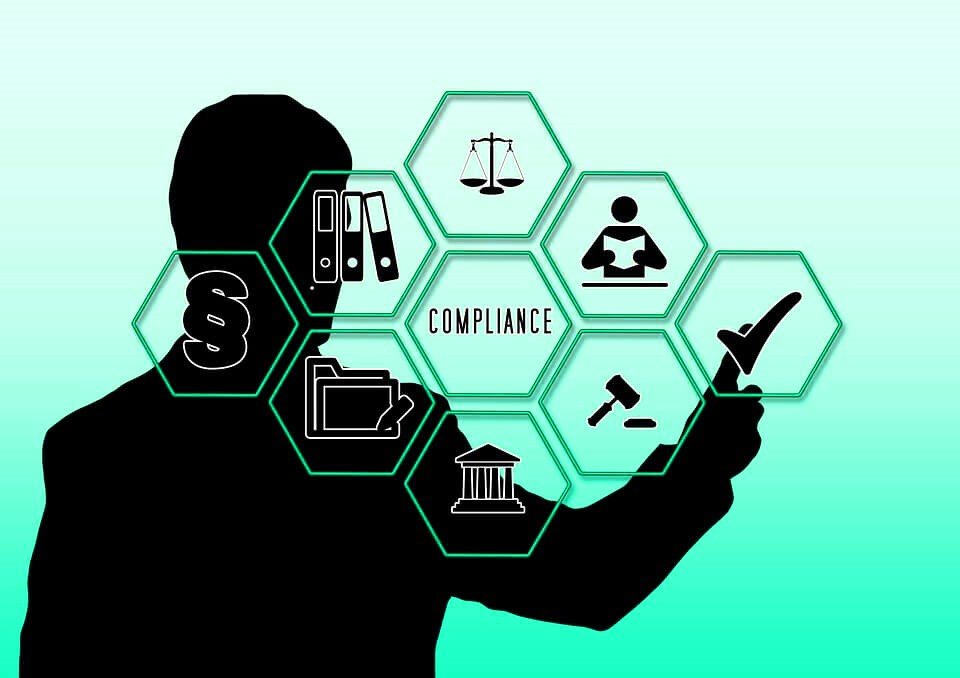The Future of Legal Technology: Trends and Developments to Watch


Technology has permeated practically every business in today’s world of rapid change, and the legal profession is no exception. A new era of legal practice has emerged as a result of the convergence of law and technology, revolutionizing both the way legal practitioners provide their services and how clients access justice. By spotlighting the trends and advancements that are transforming the legal world, this essay examines the future of legal technology.
The State of Legal Technology Right Now
Technology’s Effect on the Legal Sector
Technology has significantly altered how legal practitioners work during the past ten years. Technology has created new opportunities for law firms, corporate legal departments, and individual practitioners, from automating repetitive duties to improving the accuracy and efficiency of legal research. Legal professionals can improve client outcomes, increase productivity, and streamline their workflows by utilizing technology.
Tools of Common Legal Technology
Today, many crucial legal technology tools are in use. These consist of legal research databases, case management software, document automation tools, and e-discovery platforms. These tools are now essential for managing cases, automating document preparation, handling huge amounts of electronic data, and conducting thorough legal research by legal experts.
Modern Legal Technology Trends
Applied Machine Learning and Artificial Intelligence
Numerous changes are being made in the legal industry as a result of artificial intelligence (AI) and machine learning (ML). These tools can analyze enormous amounts of data related to the law, spot trends, and offer insights that were previously only accessible after great human effort. Legal researchers can more quickly identify pertinent case law and statutes thanks to platforms driven by AI. Lawyers can evaluate the likelihood of a litigation strategy’s success by using ML systems to anticipate case outcomes.
Workflow optimization through automation
In order to maximize legal workflows, automation is essential. Legal document creation, review, and storage can be streamlined using document management systems with automation capabilities, reducing errors and expediting the process. Tools for legal project management make it possible for legal teams to collaborate effectively, facilitating efficient workflow management and prompt service delivery to clients.
Cryptocurrencies and smart contracts
The manner that legal agreements are drafted and carried out has the potential to undergo a revolution thanks to blockchain technology and smart contracts. Blockchain offers a safe, decentralized way to record transactions that guarantee transparency and immutability. Automating contractual responsibilities, streamlining transactions, and even facilitating dispute resolution are all possible with smart contracts, which are self-executing contracts with predetermined conditions.
Read More: How to Choose the Right Legal Structure for Your Business (2023)
The Function of Analytics and Big Data
Making Decisions Based on Data in the Legal Sector
Analytics and big data have developed into priceless tools for the legal community. Legal professionals can get insights into patterns, trends, and precedents that can guide their decision-making by utilizing massive amounts of data. Legal practitioners can create litigation tactics with a higher possibility of success by analyzing the outcomes of previous cases.
Data Harvesting and Litigation Strategy
Data analytics can help attorneys create winning litigation strategies. Legal experts can find pertinent precedents, foresee opposing arguments, and adjust their strategy as necessary by analyzing past case data. Data-driven insights give lawyers the ability to make stronger arguments and raise the likelihood that their clients will receive favorable results.
Privacy and Ethical Issues
Legal Technology’s Implications for Ethics
As legal technology develops, ethical issues are brought up that need to be properly considered. For instance, it is important to make sure that the algorithms are impartial and fair when using AI for legal research. When employing cloud-based legal tools, it’s also important to preserve sensitive data and uphold client confidentiality. To preserve the integrity and faith of the legal system, legal professionals must negotiate these ethical issues.
Challenges to Privacy and Data Protection
The introduction of legal technology brings with it difficulties for data privacy and security. To protect sensitive client information, legal practitioners must verify compliance with data protection laws and put in place strong security measures. safeguarding client confidentiality and limiting unauthorized access as legal proceedings become more computerized.
Read More: Legal Considerations for Starting a Small Business (2023)
The Landscape of Legal Technology in the Future
Cooperation Between Machines and People
Collaboration between humans and robots is the key to the future of legal technology. While automation and AI have many advantages, they cannot replace the knowledge and experience of human lawyers. Instead, legal professionals will increasingly rely on technology as a tool to improve the quality of their services, expand their skill sets, and automate repetitive work.
In legal practice, augmented reality and virtual reality
Virtual reality (VR) and augmented reality (AR) have the potential to revolutionize the way lawyers connect with their clients, visualize the evidence, and present their cases in court. AR and VR technology can produce immersive experiences that let lawyers replicate situations, explain difficult ideas, and improve their comprehension of legal matters as a whole.
Quantum Computing’s Effect
A fast-developing technology called quantum computing has the power to completely change how data processing and encryption are done. Quantum computing has the potential to have a big impact on the legal industry in areas like encryption, data security, and sophisticated simulations. Legal practitioners need to be aware of the ramifications of quantum computing as it develops and modify their practices accordingly.
Conclusion
Legal technology has a bright future ahead of it, with many chances to improve the effectiveness and efficiency of legal services. The legal profession is changing as a result of technological breakthroughs in the field, from blockchain-enabled smart contracts to AI-powered legal research. To fully benefit from these technological breakthroughs, it is essential to address ethical issues, and privacy problems, and assure collaboration between humans and machines.
FAQs
How does legal technology work?
Legal technology is the application of technology, including software, artificial intelligence (AI), automation, and data analytics, to enhance the delivery of legal services, simplify legal procedures, and better client results.
What advantages does artificial intelligence provide the legal sector?
By automating repetitive processes, enhancing legal research and analysis, forecasting case outcomes, and streamlining document management, artificial intelligence can help the legal sector. This will boost efficiency and improve customer service.
What ethical issues are raised by legal technology?
Maintaining client confidentiality and data protection, sustaining professional integrity in the use of technology, and assuring fair and objective algorithms are among the ethical issues with legal technology.
Will attorneys be replaced by legal technology?
Legal technology won’t take the role of actual lawyers, sorry. Instead, it will improve their talents, automate menial chores, and free up legal professionals to concentrate on higher-value work like complicated problem-solving, client counseling, and strategy planning.
How can law firms change to the evolving legal technology landscape?
By investing in technological infrastructure, training staff to use technology effectively, staying current on the latest advancements, and embracing human-machine collaboration to provide better legal services, law firms can adapt to the changing landscape of legal technology.











One Comment